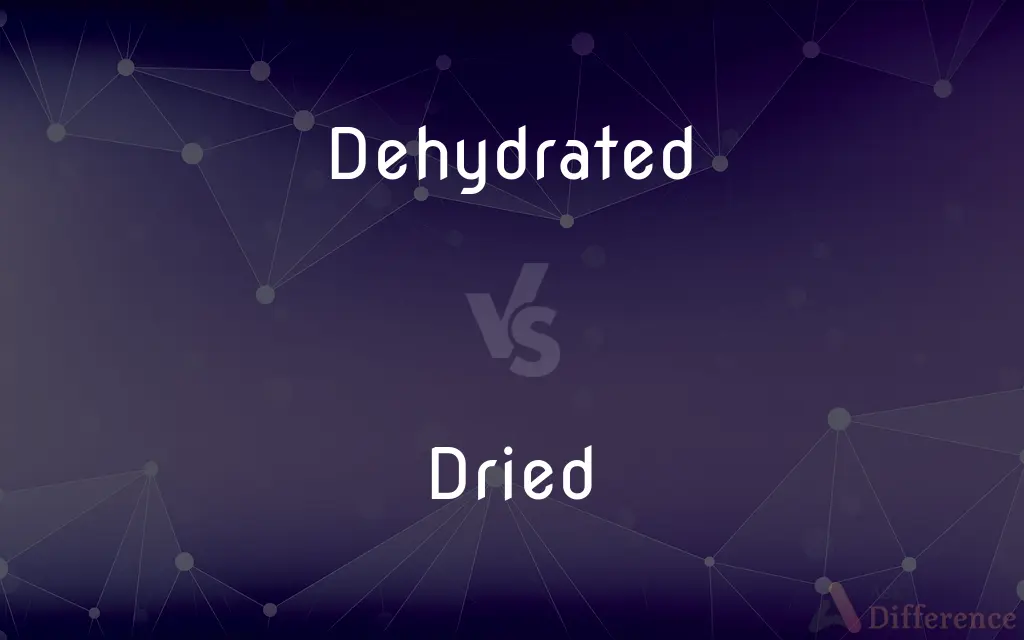Dehydrated vs. Dried — What's the Difference?

Difference Between Dehydrated and Dried
ADVERTISEMENT
Compare with Definitions
Dehydrated
To remove water from; make anhydrous.
Dried
Past tense and past participle of dry.
Dehydrated
To preserve by removing water from (vegetables, for example).
Dried
Without water or moisture, said of something that has previously been wet or moist; resulting from the process of drying.
Dehydrated
To deplete the bodily fluids of
The hot weather dehydrated the runners.
ADVERTISEMENT
Dried
Usually of foods: cured, preserved by drying.
Dried fish; dried fruit
Dehydrated
To lose water or bodily fluids.
Dried
Sold raw and unprocessed.
Dried lentils
Dehydrated
Simple past tense and past participle of dehydrate
Dried
Simple past tense and past participle of dry
Dehydrated
From which the water has been removed.
Dried
Not still wet;
The ink has dried
A face marked with dried tears
Dehydrated
Suffering from dehydration.
Dried
Preserved by removing natural moisture;
Dried beef
Dried fruit
Dehydrated eggs
Shredded and desiccated coconut meat
Dehydrated
Thoroughly dried out.
Dehydrated
Suffering from fluid deprivation; as, to become deydrated from overexertion on a hot day.
Dehydrated
Suffering from excessive loss of water from the body;
Fever resulted from becoming dehydrated
Was dehydrated after the marathon
Dehydrated
Preserved by removing natural moisture;
Dried beef
Dried fruit
Dehydrated eggs
Shredded and desiccated coconut meat
Share Your Discovery

Previous Comparison
Demanding vs. Exacting
Next Comparison
Ascertain vs. Determine













































